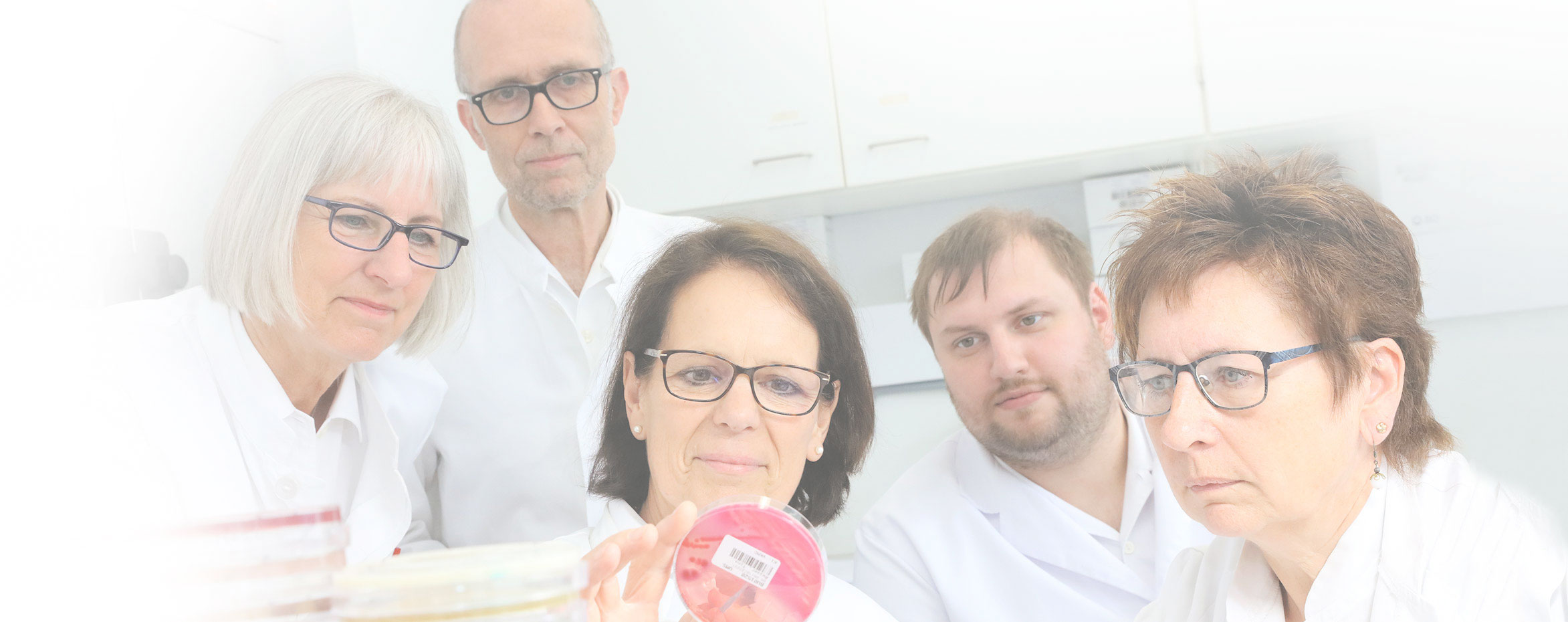Department XIV Clinic for Trauma Surgery and Orthopaedics, Septic Reconstructive Surgery
Research and Treatment Centre for the Reconstruction of Defect Wounds
We offer our patients – civilian as well as military – the entire range of examinations and treatments in the field of trauma surgery and orthopaedics using the most modern methods. We always orient ourselves to the individual requirements and needs of the individual patient. We have specialised in the areas of joint replacement (endoprosthetics) with alternating operations, sports and age traumatology, knee joint, shoulder and forefoot surgery as well as the treatment of complex infections of bones, soft tissues, joints and endoprostheses/osteosynthesis material and the coverage of soft tissues defects (septal reconstructive surgery).
In cooperation with the departments of vascular surgery and dermatology, we also offer a high level of expertise for the treatment of complex wounds and wound healing disorders at the certified Wound Center (IWC).
In addition to outpatient and operative treatment by the professional associations (including the Injury Type Procedure (VAV)), the clinic is certified as a Regional Trauma Centre (DGU) and is part of the Trauma Network Berlin.
As the academic hospital of Berlin University (Charité-Universitätsmedizin), we are very committed to research and teaching. We teach students of human medicine in clinical everyday life and participate in the training of young academics with lectures. Our scientific and international interest is particularly focused on wound and bone healing, infection treatment and prevention, regenerative medicine, compartment syndrome as well as emergency and disaster medicine and further training for surgeons.
The Section for Septic and Reconstructive Surgery at the Trauma Surgery Clinic has an experienced and well-rehearsed team of doctors and nurses who have been dealing with the rehabilitation of bone and soft tissue inflammations and the associated recovery measures as well as rehabilitation for years. Colleagues from trauma surgery, vascular surgery and plastic surgery are involved). Through very close cooperation with the hospital’s own microbiology department, its own specialist for hospital hygiene, its own hygiene officer in the department and hygiene nurses, an exceptionally modern hospital hygiene concept can be realised. This can maximally reduce the risk of so-called nosocomial infections, i.e. infections acquired in hospital. Through standardised rapid diagnostics, a highly differentiated use of antibiotics (Antibiotic Stewardship Program), outstanding experience in the field of septic surgery after severe wounds and injuries and an extraordinarily consistently trained nursing staff, we meet the challenge of surgical infections even with multi-resistant pathogens. In order to master these in the future, we will also use anti-bacterial bacteriophages (viruses that exclusively attack and kill specific bacteria).


